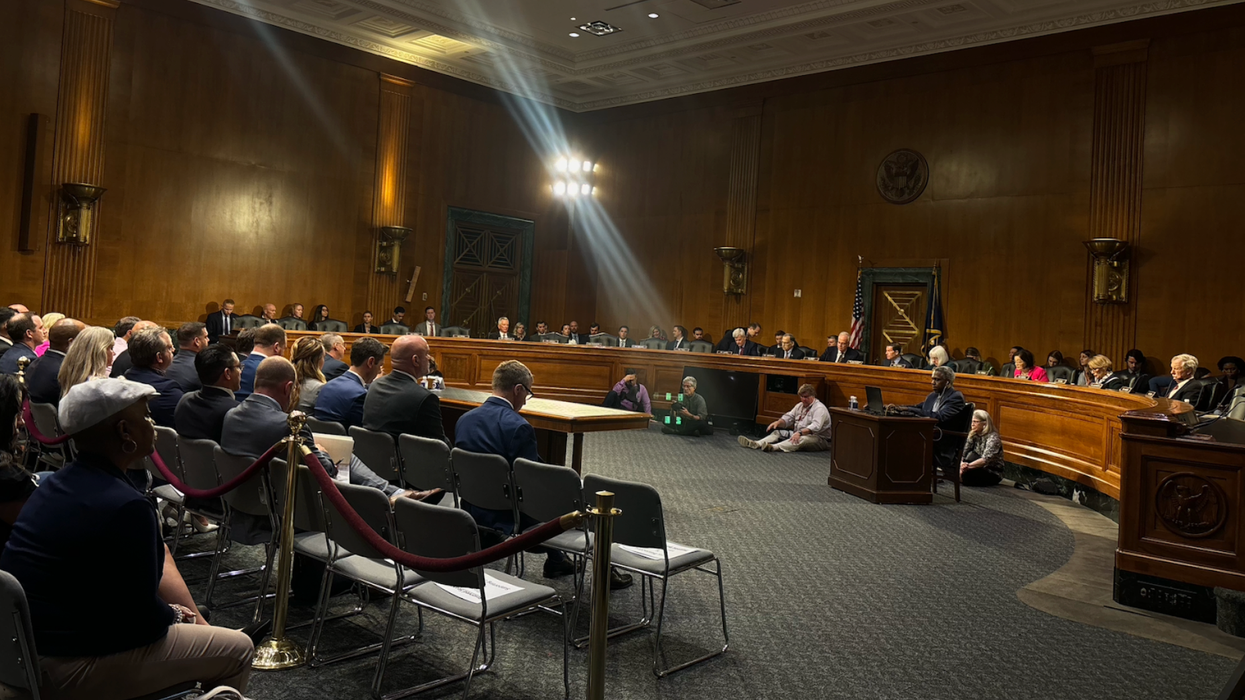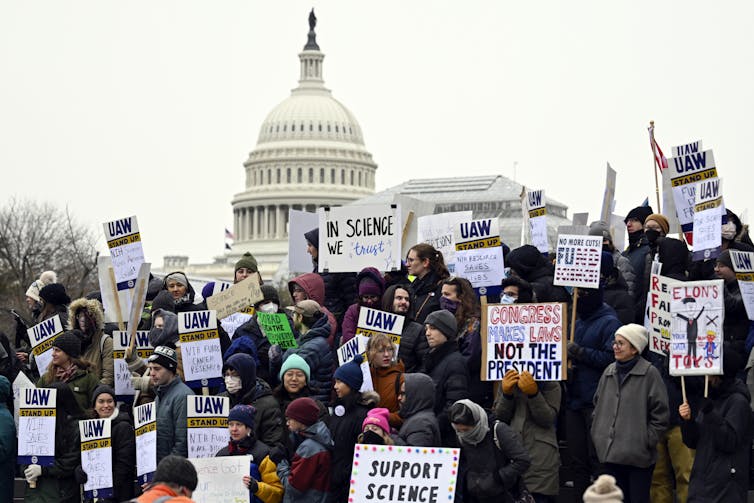The same polarizing politics that led to the Jan. 6 insurrection at the Capitol may also prevent Congress from investigating the attack.
Ahead of the House's vote Wednesday to create an investigative commission, Minority Leader Kevin McCarthy of California voiced his opposition to the bill. But several of his fellow Republicans have broken from the leadership's stance, signaling they would support an independent probe into the unprecedented attempt to subvert American democracy.
The GOP's splintering over the Jan. 6 commission underscores divisions within the party, between those who remain loyal to Donald Trump and those who want the GOP to go in a different direction. And lack of significant support from Republicans on such a critical issue will only perpetuate the dysfunctions within the country's political system.
Co-sponsored by Democratic Rep. Bennie Thompson of Mississippi and GOP Rep. John Katko of New York, the commission would consist of 10 members, evenly appointed by the two parties' leadership in the House and Senate. Modeled after the commission that investigated the Sept. 11 terrorist attacks, this body would have the power to receive evidence and issue subpoenas.
The commission would be required to hold public hearings and submit a final report to Congress and President Biden by the end of the year.
Sign up for The Fulcrum newsletter
Even after Democrats conceded to McCarthy on a number of points aimed at making the commission more bipartisan and independent, the minority leader formally announced his opposition Tuesday. McCarthy said the scope of the investigation should be broadened to include violent incidents that occurred across the country as a result of racial justice protests.
"Given the political misdirections that have marred this process, given the now duplicative and potentially counterproductive nature of this effort, and given the Speaker's shortsighted scope that does not examine interrelated forms of political violence in America, I cannot support this legislation," McCarthy said in a statement.
Speaker Nancy Pelosi originally proposed Biden would have a say in the committee appointments, but that was rolled back during negotiations. Party leaders also agreed that the Democrat-appointed chair and the Republican-appointed vice chair would need to agree on which witnesses to subpoena. They also agreed to ban current elected officials from serving on the commission in an effort to make the investigation more independent.
While the Jan. 6 commission bill doesn't need Republican votes to pass in the Democrat-majority House, receiving GOP support in that chamber could make it easier for the legislation to obtain the 60 votes needed to pass in the evenly split Senate.
However, Senate Minority Leader Mitch McConnell piled onto the GOP opposition Wednesday by announcing he would vote against creating a Jan. 6 commission — a blow to the bill's chances in the Senate.
Failing to receive support from both major parties would be a noteworthy departure from historical precedent. In the cases of Watergate and 9/11, Congress overwhelmingly supported establishing investigative committees.
During a press call Wednesday, former New Jersey Gov. Tom Kean and former Rep. Lee Hamilton, who served as chairman and vice chairman of the 9/11 commission, urged Congress to approve the commission and investigate the Jan. 6 attack. They said "unity of purpose" was key to their commission's effectiveness.
"We put country above party to examine, without bias, the events before, during, and after the attacks," Kean and Hamilton said. "The January 6th attack on the U.S. Capitol was one of the darkest days in our history. Americans deserve an objective and accurate account of what happened. As we did in the wake of September 11, it is time to set aside partisan politics and come together as Americans in common pursuit of truth and justice."























